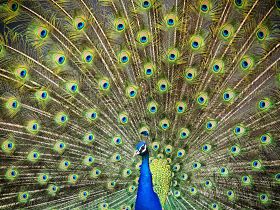40. Mind out of Matter: Materialist Theories of the Self
Posted on
Pāyasi and the Cārvāka anticipate modern-day theories of mind by arguing that there is no independent soul; rather thought emerges from the body.
Themes:
Further Reading
• W. Bollée, The Story of Paesi (Paesi-kahāṇayaṃ): Soul and Body in Ancient India. A Dialogue on Materialism (Wiesbaden: 2002).
• R. Bhattacharya, “Lokāyata Darśana and a Comparative Study with Greek Materialism,” in P. Ghose (ed.), Materialism and Immaterialism in India and the West: Varying Vistas (Delhi: 2010), 21–34.
• D. Chattopadhyaya, Defence of Materialism in Ancient India (New Delhi: 1989).
• J. Ganeri, “Emergentisms, Ancient and Modern,” Mind 120 (2011), 671-703.
• K.K. Mittal, Materialism in Indian Thought (New Delhi: 1974).
Internet Encyclopedia of Philosophy: Indian Materialism







Comments
Carvaka on inference
Hi Peter,
I quite enjoyed these episodes on the Carvaka, if for no other reason than - as you said - it's rare to find ancient philosophers whose views I find so tenable. In a similar vein, as I'm sure you're aware, the Carvaka analysis of inference has been compared to Hume's analysis of induction. Why, then, may I ask, has the subject not been given an episode? Is this one of those cases where the Humean reading is really a case of seeing something that isn't really there on the basis of modern views?
In reply to Carvaka on inference by Jack
Inference
Do you mean, why didn't we talk more about the comparison to Hume? (Because we did talk about inference quite a bit in the first Carvaka episode.) In general, I personally have been trying to avoid drawing too many parallels to European thought - we will have an episode or two later on actual historical connections between the two spheres - though it isn't always easy to resist! In this case thought the line of interpretation we took on Carvaka epistemology was that it is _not_ like Hume's position, because they are casting doubt only on a fairly narrow range of special inferences to do with things like immortality of the self, the existence of gods and karmic fruits etc.
In reply to Inference by Peter Adamson
D'oh! I guess it'd been two
D'oh! I guess it'd been two weeks since hearing the previous episode and didn't remember discussion of Hume, and so thought to myself "Carvaka on inference is coming up!" Given that you've rejected it, I have to ask: is the more Hume-style argument ascribed to the Carvaka (by at least Roy Perrett, as well as probably a few others - I'm woefully underinformed on Indian philosophy) something that appears fairly explicitly in the criticisms of them by other schools? Or is it something only implicit that's been read into the primary sources?
In reply to D'oh! I guess it'd been two by Jack
Carvaka and inference
I beleive almost everything we know about Carvaka is through criticism from other schools or other quotation (though this has made it possible to reconstruct a lot of the Carvaka-Sutra). So the question of whether they were globally attacking inference, or only certain types, is more of an ambiguity in the sources themselves. They can be read in both ways, my sense though is that the direct quotations more strongly suggest a narrower attack on inferences to supernatural things.
In reply to Carvaka and inference by Peter Adamson
I suppose what I had in mind
I suppose what I had in mind was something like the attribution of radical relativism to the sophists, which is quite clear in some of the earliest sources we have, but is probably an accurate reflection of what they actually said. In this case, I was wondering if Carvaka opponents explicitly laid out the problem of induction, and then attributed it to the Carvaka, albeit questionably. The alternative, which I think is what you're saying with your last post, is that the writings by Carvaka opponents that we have could be interpreted as laying out the problem of induction, but is somewhat ambiguous.
In reply to I suppose what I had in mind by Jack
Induction and Carvaka
Right, I think it is more the latter - though we have all the usual problems of trying to reconstruct a view accurately when it is known only through hostile reports!
In reply to Induction and Carvaka by Peter Adamson
Thanks Peter.
Thanks Peter.
Charvaka
Peter, thank you, I have enjoyed the Charvaka episodes immensely. Particularly, the last episode.
Indian herstory
Oh God, did you really say "Indian herstory" at 3:33?
I wasn't going to comment on your often confusing use of "she" as a neutral pronoun, but now it's getting out of hand!
In reply to Indian herstory by Drilou
Herstory
Oh no, that was just me almost stumbling over the word but not so badly that I stopped to re-record it.
Add new comment